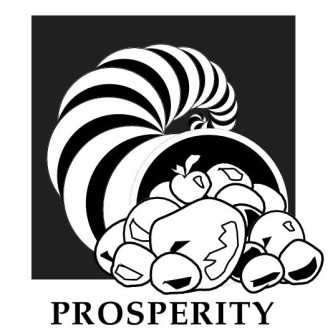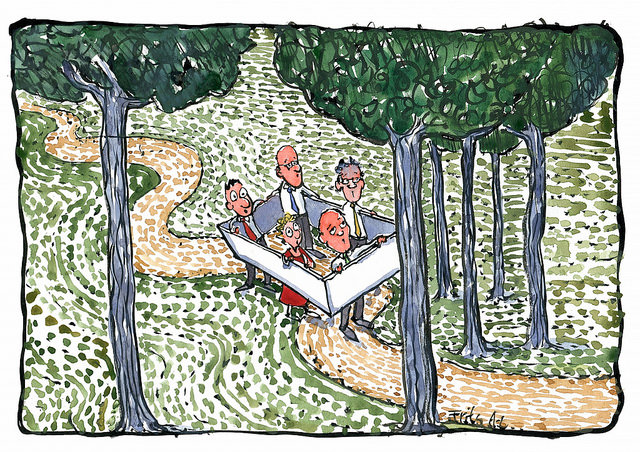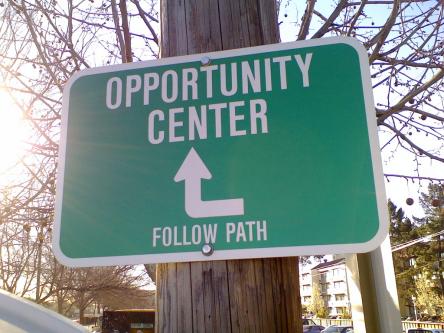
We’ll gather in a rustic Evanston back yard [you get the exact address when you RSVP] to commemorate Henry George’s 174th birthday (actually he was born September 2, but that’s inconvenient for most working folks). This year, we’re also celebrating a new team supporting School operations. In honor of which, and thanks to the generosity of HGS supporters past and present, everyone who’s completed any HGS course, ever, is welcome to attend without charge. Bring a significant other, or a friend who might find HGS or interest, also no charge. And of course no charge for your minor dependents. We hope to see people who might have taken a course years ago and almost lost touch with us. Come by, meet the new team, and share your ideas.
There will be food, drink, a lot of conversation and maybe some productive argument about how to help our community understand how the economy works, the fundamental principles which can be harnessed to bring prosperity and freedom.
PLEASE PLEASE PLEASE let us know by Friday September 4 whether you’ll be coming. It would be great, but not required, if you can bring something to share. Monetary donations are also extremely welcome, and can be made here, or by check to the School, or at the event.

We’ll gather in a rustic south Evanston back yard [you get the exact address when you RSVP] to commemorate Henry George’s 177th birthday (actually he was born September 2, but that’s inconvenient for most working folks). This year, we’re also celebrating, we hope, the School’s new location (yet to be determined at this writing).
Thanks to the generosity of HGS supporters past and present, everyone who’s completed any HGS course, ever, is welcome to attend without charge. Bring a significant other, or a friend who might find HGS of interest, also no charge. And of course no charge for your minor dependents. We hope to see people who might have taken a course years ago and almost lost touch with us. Come by, meet some of the new students and graduates, as well as the volunteer staff.
There will be food, drink, a lot of conversation and maybe some productive discussion about how to help our community understand how the economy works, the fundamental principles which can be harnessed to bring prosperity and freedom.
PLEASE PLEASE PLEASE let us know by Friday September 2 whether you’ll be coming. It would be great, but not required, if you can bring something to share. Monetary donations are also extremely welcome, and can be made here, or by check to the School, or at the event.
Between 1948 and 1973, Americans’ real wages rose almost as fast as their productivity. After 1973, productivity grew 147% but wages rose only 19%. This raises two questions:
(1) If workers getting less, who is getting more?
(2) Is there a way to restore the balance?
To solve the problem of poverty, and the many other problems that follow from it, ordinary workers need higher wages. George Menninger describes how to raise wages without interfering in the free market and without taking anyone’s earnings.
George Menninger is an instructor at the Henry George School of Chicago, and attendees at this free program will have the opportunity to sign up for his Progress & Poverty course.
You can sign up for this free event thru Eventbrite, or RSVP directly by email.
Between 1948 and 1973, Americans’ real wages rose almost as fast as their productivity. After 1973, productivity grew 147% but wages rose only 19%. This raises two questions:
(1) If workers getting less, who is getting more?
(2) Is there a way to restore the balance?
To solve the problem of poverty, and the many other problems that follow from it, ordinary workers need higher wages. George Menninger describes how to raise wages without interfering in the free market and without taking anyone’s earnings.
George Menninger is an instructor at the Henry George School of Chicago, and attendees at this free program will have the opportunity to sign up for his Progress & Poverty course.
No reservation is required, but you can let us know by email that you’re coming.
Between 1948 and 1973, Americans’ real wages rose almost as fast as their productivity. After 1973, productivity grew 147% but wages rose only 19%. This raises two questions:
(1) If workers getting less, who is getting more?
(2) Is there a way to restore the balance?
To solve the problem of poverty, and the many other problems that follow from it, ordinary workers need higher wages. George Menninger describes how to raise wages without interfering in the free market and without taking anyone’s earnings.
George Menninger is an instructor at the Henry George School of Chicago, and attendees at this free program will have the opportunity to sign up for his Progress & Poverty course.
No reservation is required, but you can let us know by email that you’re coming.

We’ll gather in a rundown south Evanston back yard [you get the exact address when you RSVP; be assured it is half a mile to publc transportation.] to commemorate Henry George’s 178th birthday (actually he was born September 2, but by tradition we use Labor Day). This year, we’re also celebrating our transition to a virtual school using multiple locations, no longer paying monthly rent to a landlord.
Thanks to the generosity of HGS supporters past and present, everyone who’s completed any HGS course, ever, is welcome to attend without charge. Bring a significant other, or a friend who might find HGS of interest, also no charge. And of course no charge for your minor dependents. We hope to see people who might have taken a course years ago and almost lost touch with us. Come by, meet some of the new students and graduates, as well as the volunteer staff.
There will be food, drink, a lot of conversation and maybe some productive discussion about how to help our community understand how the economy works, the fundamental principles which can be harnessed to bring prosperity and freedom.
PLEASE PLEASE PLEASE let us know by Friday September 1 whether you’ll be coming. It would be great, but not required, if you can bring something to share. Monetary donations are also extremely welcome, and can be made here, or by check to the School, or at the event.

Yes, it is possible to end poverty in America — or any independent nation — by recognizing a clear and logical distinction between private property and community property. Not just the poor, but everyone would have the opportunity to earn a decent living and enjoy better quality of life. Henry George, a prominent American philosopher and economist of the late 19th century, was the most prominent advocate of this reform. His book on the subject, Progress & Poverty, was probably the best-selling nonfiction work of his time, sparked a movement which brought prosperity to several American communities and foreign countries.
Introducing Progress & Poverty is a program by the Henry George School of Chicago, outlining the principles George advocated, how and why they work, and their potential for solving today’s problems in this city and elsewhere. This program will next be presented on Tuesday, October 10, 6PM to 8PM in the Chicago loop. Attendance is without charge or obligation. An extended course is also available for those interested.
We regret that due to management practices at the building, we must require pre-registration by email or phone (312 450-2906). If you are interested in the topic but this date and location don’t fit your schedule, please sign up for our announcement list. Also note that the program will be repeated in Edgewater on Sunday afternoon, October 29.

Yes, it is possible to end poverty in America — or any independent nation — by recognizing a clear and logical distinction between private property and community property. Not just the poor, but everyone would have the opportunity to earn a decent living and enjoy better quality of life. Henry George, a prominent American philosopher and economist of the late 19th century, was the most prominent advocate of this reform. His book on the subject, Progress & Poverty, was probably the best-selling nonfiction work of his time, sparked a movement which brought prosperity to several American communities and foreign countries.
Introducing Progress & Poverty is a program by the Henry George School of Chicago, outlining the principles George advocated, how and why they work, and their potential for solving today’s problems in this city and elsewhere. We’ll present this program on Sunday afternoon, October 29, 3PM to 5PM in the Edgewater neighborhood on Chicago’s north side. Attendance is without charge or obligation. An extended course is also available for those interested.
Pre-registration by email is encouraged, but not required if space is available. If you are interested in the topic but this date and location don’t fit your schedule, please sign up for our announcement list. Also note that the same program will be presented October 10 at a loop location.

Yes, it is possible to end poverty in America — or any independent nation — by recognizing a clear and logical distinction between private property and community property. Not just the poor, but everyone would have the opportunity to earn a decent living and enjoy better quality of life. Henry George, a prominent American philosopher and economist of the late 19th century, was the most prominent advocate of this reform. His book on the subject, Progress & Poverty, was probably the best-selling nonfiction work of his time, sparked a movement which brought prosperity to several American communities and foreign countries.
Introducing Progress & Poverty is a program by the Henry George School of Chicago, outlining the principles George advocated, how and why they work, and their potential for solving today’s problems in this city and elsewhere. We’ll present this program on Thursday afternoon, January 4, at 1PM at 300 Dodge in Evanston (CTA routes 93 and 97 stop nearby). Attendance is without charge or obligation. An extended course is also available for those interested, with sessions starting January 16 at the Evanston Public Library and January 18 in the loop.
Pre-registration by email or thru Eventbrite is encouraged, but not required if space is available. If you are interested in the topic but this date and location don’t fit your schedule, please sign up for our announcement list. Also note that a slightly expanded version of the same program will be presented January 11 at a loop location.

Yes, it is possible to end poverty in America — or any independent nation — by recognizing a clear and logical distinction between private property and community property. Not just the poor, but everyone would have the opportunity to earn a decent living and enjoy better quality of life. Henry George, a prominent American philosopher and economist of the late 19th century, was the most prominent advocate of this reform. His book on the subject, Progress & Poverty, was probably the best-selling nonfiction work of his time, sparked a movement which brought prosperity to several American communities and foreign countries.
Introducing Progress & Poverty is a program by the Henry George School of Chicago, outlining the principles George advocated, how and why they work, and their potential for solving today’s problems in this city and elsewhere. We’ll present this program on Thursday, January 11, at 6:15PM. Attendance is without charge or obligation.
An extended course is also available for those interested, with sessions starting January 16 at the Evanston Public Library and January 18 in the Loop.
Due to building access restrictions you MUST pre-register using the Eventbrite link, or by email or by phone. If you are interested in the topic but this date and location don’t fit your schedule, please sign up for our announcement list. Also note that a slightly expanded version of the same program will be presented January 11 at a loop location.
